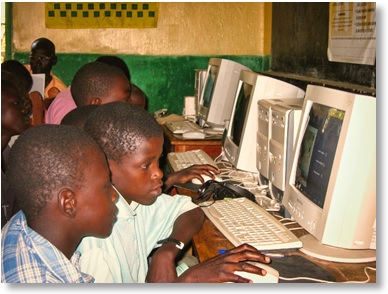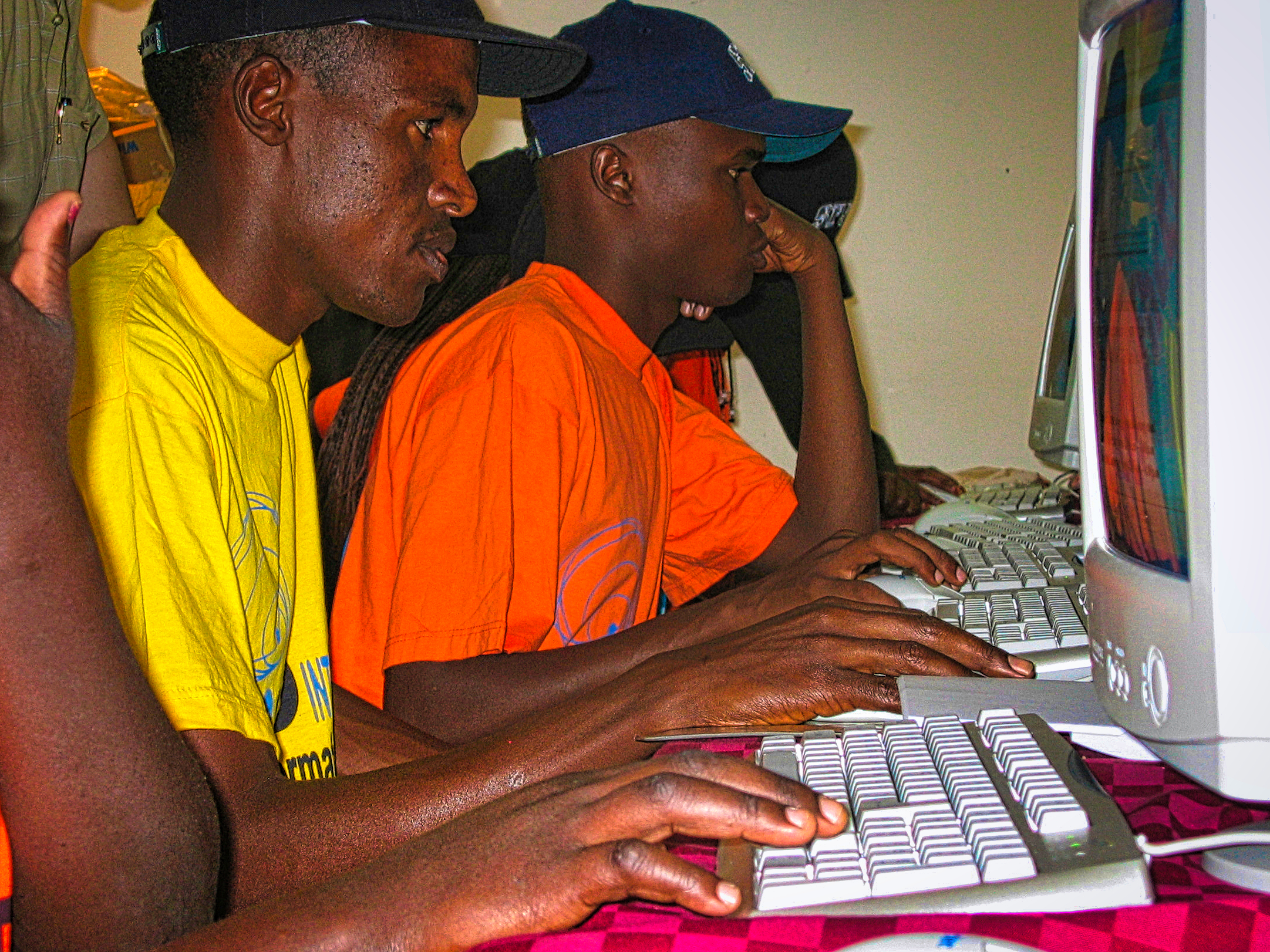In celebration of our 25th anniversary, WiRED is pleased to bring you stories from our archives. These articles provide a glimpse of WiRED’s early work as they depict the places and the projects we have focused on over the years.
More Stories from Kenya

Since the start of the year, we have been republishing stories from WiRED’s Archives covering our programs from the past 25 years. Most of the articles describe our field work from the perspective of our volunteers, who donate endless hours in these humanitarian efforts, and the stories also shed light on the philosophies that guide our efforts and motivations.
Over the next few months we will tell the stories of the people who have benefited from WiRED’s health training programs. They tell their stories in their own words. Most of these first-hand accounts are from people in Kenya where we initially tested our Community Health Information Centers (CHICs) under a developmental grant from the U.S. National Institutes of Health.
The outcomes people describe focus on the CHICs — a precursor to WiRED’s current programs that train community health workers (CHWs), who provide clinical services and teach healthy practices in the community. But, before the CHWs, were the CHICs, described in the following stories.From 2001
More Stories from Kenya
Edited by Jayne and Joseph Jackowitz; Consulting Editor, Krista Glen
Original Story Coordinator, Pauline Karani
In 2001, WiRED began work on a network of health information centers in Kenya, including 19 Community Health Information Centers (CHICs). WiRED’s primary goal is to raise health standards of Kenyan communities, and members of the community believe these Centers are ideal resources from which to obtain current information about health care.
 In an effort to assist Kenya in its fight against infectious diseases such as HIV/AIDS, the CHICs serve Kenya’s grassroots populations by providing access to health information for health workers, primary care givers and young people. Merging technology with a trained support team, these Centers enable people to take responsibility for their own health and well-being, and ultimately to recognize their ability to shape their own lives.
In an effort to assist Kenya in its fight against infectious diseases such as HIV/AIDS, the CHICs serve Kenya’s grassroots populations by providing access to health information for health workers, primary care givers and young people. Merging technology with a trained support team, these Centers enable people to take responsibility for their own health and well-being, and ultimately to recognize their ability to shape their own lives.
It is difficult to comprehend the immense tragedy of AIDS as it sweeps across Africa. The following stories, sent to us by CHIC visitors, staffers and community members, reflect the anguish and sorrow and the hope and joy experienced among those familiar with WiRED’s Centers. These recollections describe the value of WiRED’s programs and show how WiRED is offering an opportunity to those who have lost all optimism to once again experience hope. Some of these stories below map the lives of young people, many of whom have been orphaned or have become infected with HIV. These children are destined to suffer the same fate as their elders if they do not receive help in time.
REHABILITATION THROUGH KNOWLEDGE
By James Mwangi, Client Support Staff
Nakuru Community Health Information Center
One Wednesday morning, 12 uniformed teenage girls entered our centre, and were accompanied by a gentleman who introduced
himself an administration official for the Nakuru Probation and Rehabilitation Girls Centre.
The girls were placed into groups of three and each group sat in front of a computer. Not all of the girls could understand English, so a client support staff member helped the girls understand the material.
The groups looked through one CD regarding HIV/AIDS, all at the same time, as the computer network was able to facilitate this continuity. An additional advantage was that the girls were able to become more familiar with the use of the computers and were able to navigate the information.
The girls were astonished by the images they saw. This was evident by their expressions of shock upon realizing the extent of the disease and ensuing infection. They asked questions and discussed issues relating to HIV/AIDS. Our observation about all of the girls was that they had a special need for information about health – the information they obtained from the CHIC was helpful, and we could tell from their conversations that they planned to change their behavior.
DISABLED OUTREACH
By John Odour
I met a 17-year-old girl at Cheshire home and was impressed by the way she was struggling to access HIV and AIDS information on the computer. During her first visit, the young girl was not sure if she would be able to get the
information by herself. However, in her second visit she took the mouse to point the curser to the icons on the monitor and clicked it to open the tutorials on HIV and AIDS. I could see a broad smile in her face, showing that she had made it at long last.
 It’s my wish you could see that smile from the young lady, speaking louder than the words she was trying to stammer out. The smile showed how joyous she was to get the HIV information from the latest technology, provided by WiRED. The young girl was grateful for the opportunity, and said it was first she had seen anything like it in her lifetime. Viva, WIRED!
It’s my wish you could see that smile from the young lady, speaking louder than the words she was trying to stammer out. The smile showed how joyous she was to get the HIV information from the latest technology, provided by WiRED. The young girl was grateful for the opportunity, and said it was first she had seen anything like it in her lifetime. Viva, WIRED!
Editors’ note: This collection of essays was written by average people who have visited or served as counselors at WiRED’s Community Health Information Centers (CHICs) throughout Kenya. The CHIC program is an innovation in dispensing information about HIV/AIDS and other critical health issues to grassroots communities. These Centers integrate computer technology, counselor support and a wide array of community resources in the fight against AIDS in Africa. The essays were written by Kenyans. Their stories are sometime humorous and sometimes tragic, but they all express hope, and they all come from the heart.



